Setting clear expectations on how to use a coworking space helps your members get along and keeps things running smoothly. We’ll walk through the essential coworking space and regulations you should set and explain how you can manage and enforce them with ease.
Guide to coworking space rules
1. Respect for shared spaces and amenities
Make sure your members know that they should treat common areas like the kitchen, lounges, and meeting rooms with care, just like they would in their own home. Encourage simple habits like wiping down counters, putting dishes in the dishwasher, and taking out their trash. You can post polite reminders or include these in your onboarding materials or the coworking space agreement.
Ask members to use shared resources like printers or kitchen appliances mindfully. Maybe set a soft limit on printing (or let members purchase printing credits from coworking management software) or suggest off-peak times for high-demand items. And when something breaks or runs out, make it easy for them to report the issue to your team.

Lastly, give a heads-up about space usage. If someone’s taking over a lounge area with lots of gear, holding informal meetings in the hallway, or not showing up when they booked a room, it can create issues among members.
2. Keeping the noise down
Noise is a tricky one. You want the space to feel energetic and social, but at the same time, people need to focus and get their work done.
One of the easiest ways to help is by setting up quiet zones. Make it clear which areas are meant for focused, heads-down work, and which ones are better for chats and collaboration. Simple signs or color-coded zones can go a long way.
Be sure to offer enough phone booths and meeting rooms so members have a place to step away for longer calls or group discussions. Encourage members to plan ahead for noisier activities, like team huddles or brainstorms. Suggest using meeting rooms or quieter hours to avoid disrupting the flow.
If those rooms are often full, it might be time to add more or rethink how they’re booked.
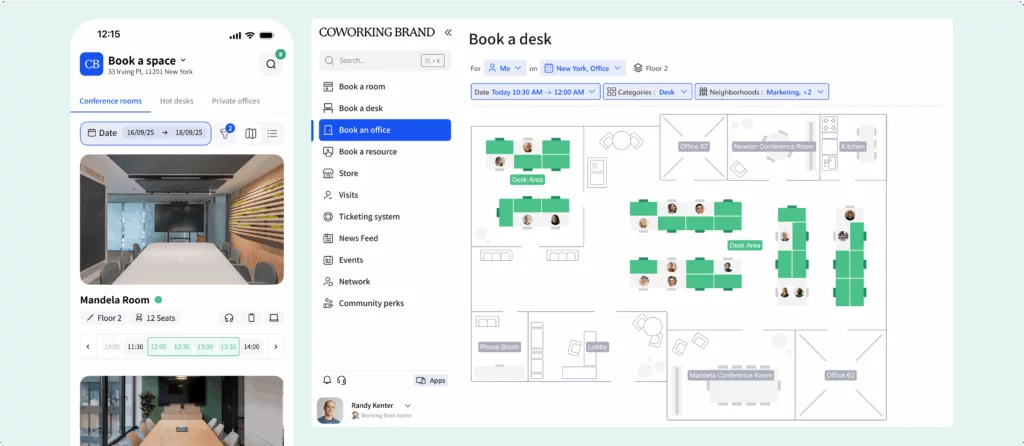
3. Following the meeting room etiquette
Start with a reliable booking system. Make sure members can check room availability and book ahead online (ideally through your coworking software like Archie). Automated reminders are a bonus and help reduce no-shows.

Post a quick list of meeting room dos and don’ts. Keep it simple: show up on time, leave the space tidy, and cancel your booking if you’re not going to use it. Put these reminders in the app, on the booking screen, and right inside the rooms.
Also, remind members to respect others’ bookings. Just because a room looks empty doesn’t mean it’s available; they should always check the schedule before walking in or using the space.
Encourage members to report any issues right away, whether it’s a broken remote, a missing marker, or something not working. That way, your team can jump on it quickly.
And don’t forget to communicate your food policy clearly. If eating is allowed in meeting rooms, make sure members know they’re responsible for cleanup. No one wants to walk into a messy space.
4. Getting involved in the community
Promote a friendly, respectful atmosphere. A warm welcome, a simple hello, or a quick intro can help new members feel comfortable and open the door to future connections.
Host regular events. Even small ones like coffee mornings, lunches, or monthly happy hours. These are great opportunities for members to meet, network, and relax. You can also mix in skill-sharing sessions, workshops, or panel talks so members can both learn and teach.

Make it easy for members to share what they’re good at. Maybe someone’s a branding expert or a developer; invite them to run a short session or offer help to others. It’s a great way to build trust and boost the sense of collaboration in the space.
Encourage people to use community bulletin boards, whether digital or on the wall. Members can promote their services, look for project partners, or stay up to date on what’s happening in the space.
And don’t forget about feedback. Let members know their suggestions are welcome, and show them that their input leads to real changes.
5. Keeping everyone safe
A big part of running a successful coworking space is making sure your members feel safe and secure, whether they’re in the space early in the morning, late at night, or bringing a visitor in for a quick meeting.
Keep in mind that access is just for members. Every member should use their own key card, fob, or access code and keep it to themselves. Sharing access might seem harmless, but it can put everyone’s safety and privacy at risk. If someone loses their access, just ask them to let your team know right away so you can deactivate it and issue a new one.

If your space isn’t open 24/7, make sure members know when it’s okay to be there. If you do offer round-the-clock access, remind members to be extra considerate during off-hours, like keeping the volume down or not inviting guests late at night.
Guest visits are welcome, but with a heads-up. It’s great when members bring in guests, whether it’s a client, friend, or collaborator. But make sure there’s a simple way for them to register guests in advance or check them in when they arrive. This helps your team keep track of who’s in the building and makes the whole space feel safer.

Guests need a few ground rules, too. Members are responsible for their guests, so it’s important they know where their guests can go and where they shouldn’t. For example, no guests in quiet zones or private offices unless they’re invited, and no helping themselves to member-only perks like lockers or printing.
Digital security matters just as much as physical security. Remind your members to use strong passwords, lock their devices when they step away, and always connect to your official Wi-Fi. Encourage them to avoid suspicious links and use email verification tools just to be sure, try a virtual private network (VPN) for sensitive work, and keep their software up to date to stay protected.
Finally, encourage your members to speak up if something feels off. Whether it’s an unfamiliar face wandering around, a door that won’t lock properly, or a safety concern, make it easy for members to report issues. A quick form in your app, a Slack message, or a friendly word to your community manager; whatever works best for your setup.
6. Thinking green
Sustainability is quickly becoming a big trend in coworking. Many members care deeply about the planet, so showing that your space is eco-friendly can go a long way.
The least you could do is make recycling easy. Put clearly labeled bins around the space, and explain what goes where during onboarding. Encourage members to avoid unnecessary printing and use digital tools whenever they can. If printing is a must, suggest double-sided to save paper.
Cut down on energy waste by reminding members to switch off lights, monitors, and appliances when they’re done. You can also install motion-sensor lights or timers to help manage energy use without any extra work.
Even small actions, like using eco-friendly cleaning supplies or asking people to bring their own food containers, show that your space cares.
Your coworking rules & guidelines template
Welcome to our coworking community! To keep things running smoothly and make sure everyone enjoys their time here, we’ve put together a few house rules. These help us create a respectful, productive, and welcoming space for all members.
1. Respect Shared Spaces
We all share this space, so let’s keep it clean and comfortable.
- Clean up after yourself! Especially in the kitchen, lounge, and meeting rooms.
- Don’t take up more space than you need.
- Please don’t use anyone else’s desk, gear, or food without asking.
2. Keep the noise down
Help us find a good balance between lively and focused:
- Use phone booths or meeting rooms for long or loud calls.
- Wear headphones for music or videos.
- Keep conversations short and quiet in open areas.
- Quiet zones are for focused work, please respect the silence.
3. Meeting Room Etiquette
Meeting rooms are shared, so fair use matters.
- Always book before using.
- Arrive on time and finish on time.
- Leave it tidy: clear the whiteboard, throw away trash, and turn off lights.
- Cancel your booking if you don’t need it so others can use the space.
4. Keep Your Data Safe
Protect your own info and help us keep the network secure.
- Use strong passwords and lock your devices when you step away.
- Only connect to the official Wi-Fi.
- Be careful with sensitive info and watch out for phishing emails.
- Report any suspicious activity to the team.
5. Be Part of the Community
This is more than just a place to work; it’s a place to connect.
- Say hi and be friendly, small gestures matter.
- Join events, workshops, and community meetups.
- Share your skills or knowledge when you can.
- Use the bulletin board to post updates or services.
- Give feedback, we’re always open to ideas!
6. Security & Access
- Don’t share your access code, fob, or key (it’s just for you).
- Lost your key? Let us know right away.
- For safety, doors must stay closed and locked outside open hours.
- Guests are welcome but must be registered ahead of time.
- Members are responsible for their guests’ behavior.
- Please don’t invite guests into restricted or quiet zones.
7. Our Right to Make Changes
We may update these rules from time to time. Don’t worry, we’ll always give you a heads-up, and the latest version will be available on our member app and website.
💬 Questions or Concerns?
Talk to our team anytime. We’re here to make sure you have a great experience.
Thanks for being part of our coworking community!
Let’s build something great — together. 🙌
How Archie helps you set clear coworking rules (and stick to them!)
Archie can make it much easier to set, share, and enforce rules and regulations in your coworking space without having to micromanage or constantly repeat yourself. Here’s how:
📝 Share rules automatically
When someone signs up, Archie can automatically send them your coworking space agreement and house rules. Everything is digital, so there’s no printing or chasing signatures; members can review and sign right from their phone or laptop.
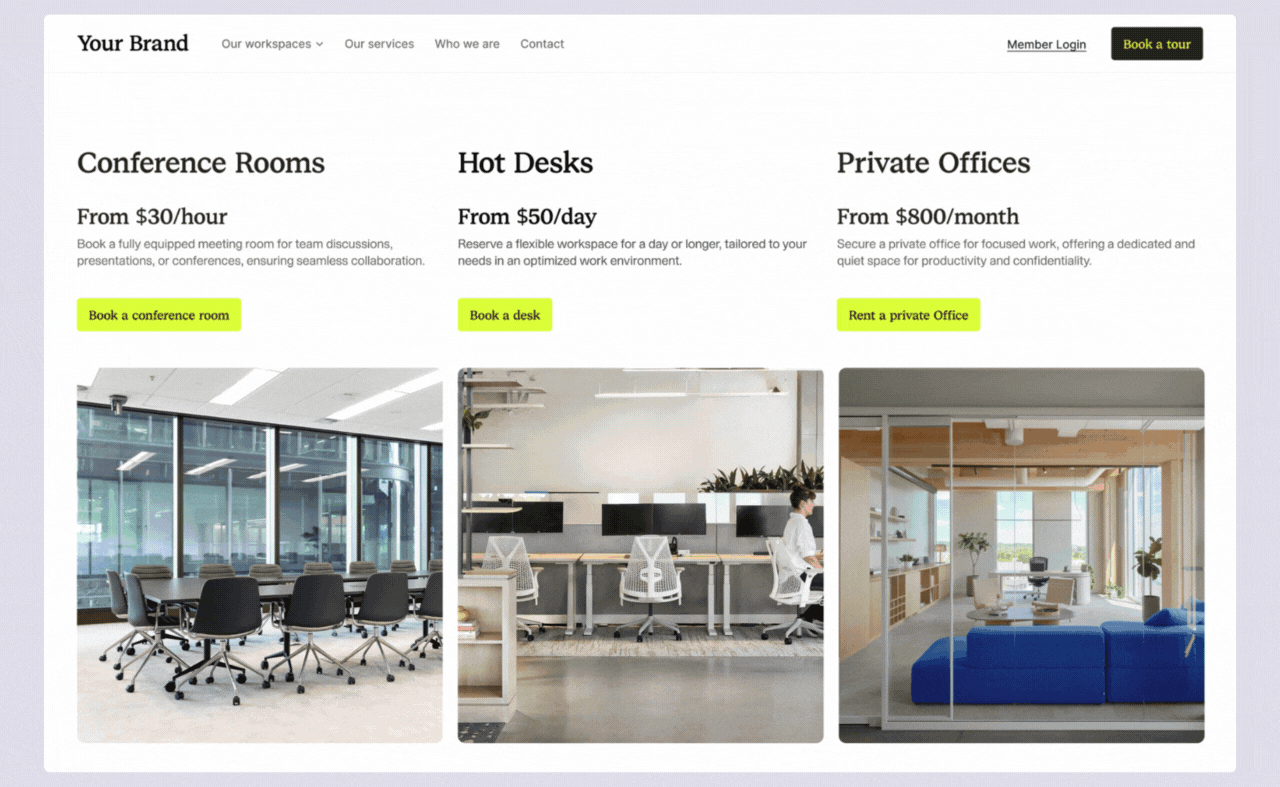
📱 Make policies easy to find
All your important policies, from meeting room etiquette to noise guidelines, can live inside the coworking member app. That way, members can quickly check things if they’re unsure, without having to ask your team.
🔔 Send reminders and updates
Use Archie to send friendly reminders when people book meeting rooms, share policy changes, and message members who forget the rules, like leaving a meeting room messy.
🚪Manage access based on behavior
If someone repeatedly breaks the rules, Archie makes it easy to pause access or limit what they can book (like blocking meeting room access for a week). This helps you keep the community fair and respectful without drama.
📊 Keep track of issues
Archie’s built-in help desk lets members report problems, whether it’s noise complaints, damaged equipment, or a full trash bin. Your team can track and resolve issues quickly.
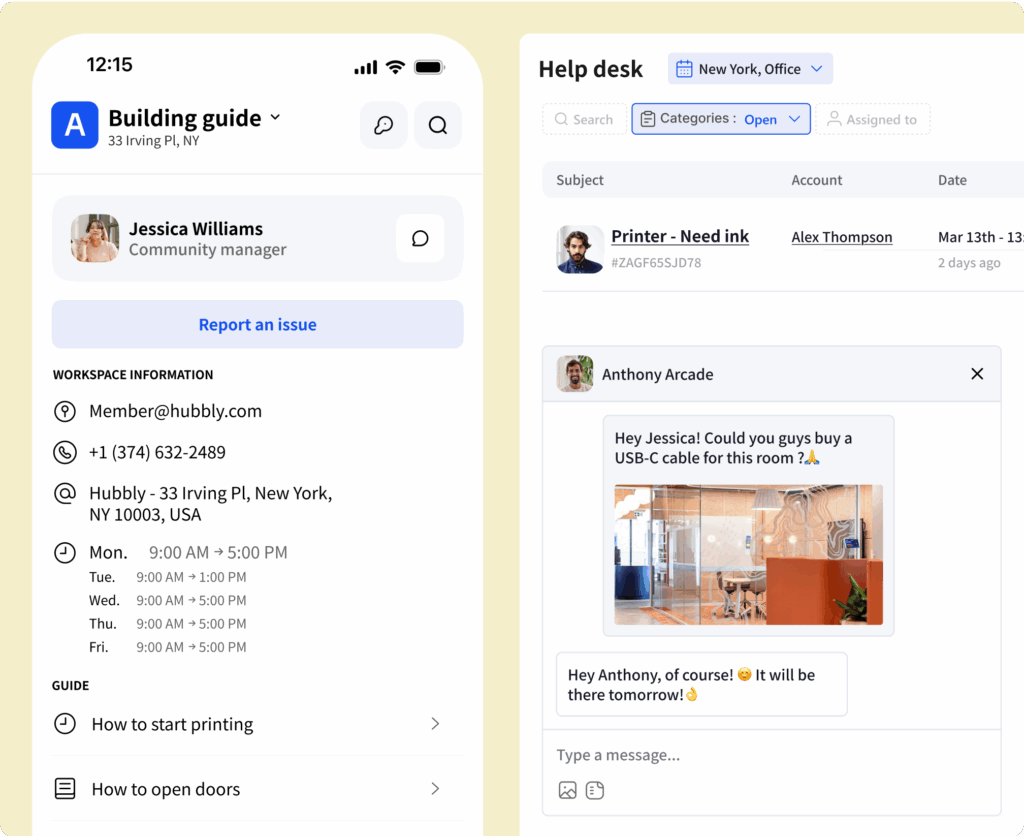
From onboarding to everyday reminders, Archie gives you the tools to communicate expectations clearly. See it for yourself.

Berenika Teter
Archie's Content Manager, fueled by filter coffee and a love for remote work. When she’s not writing about coworking spaces and hybrid workplaces, you can probably find her exploring one.
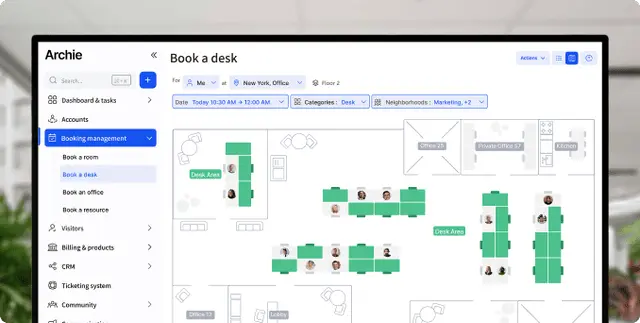
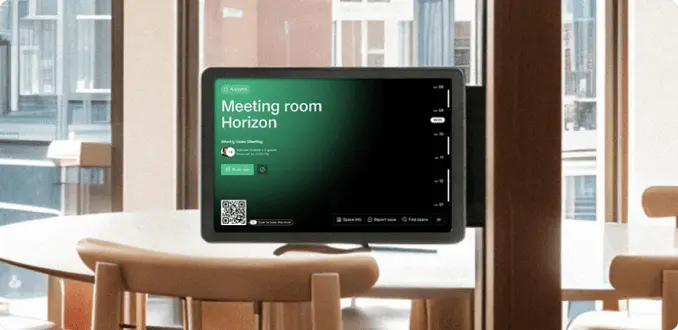



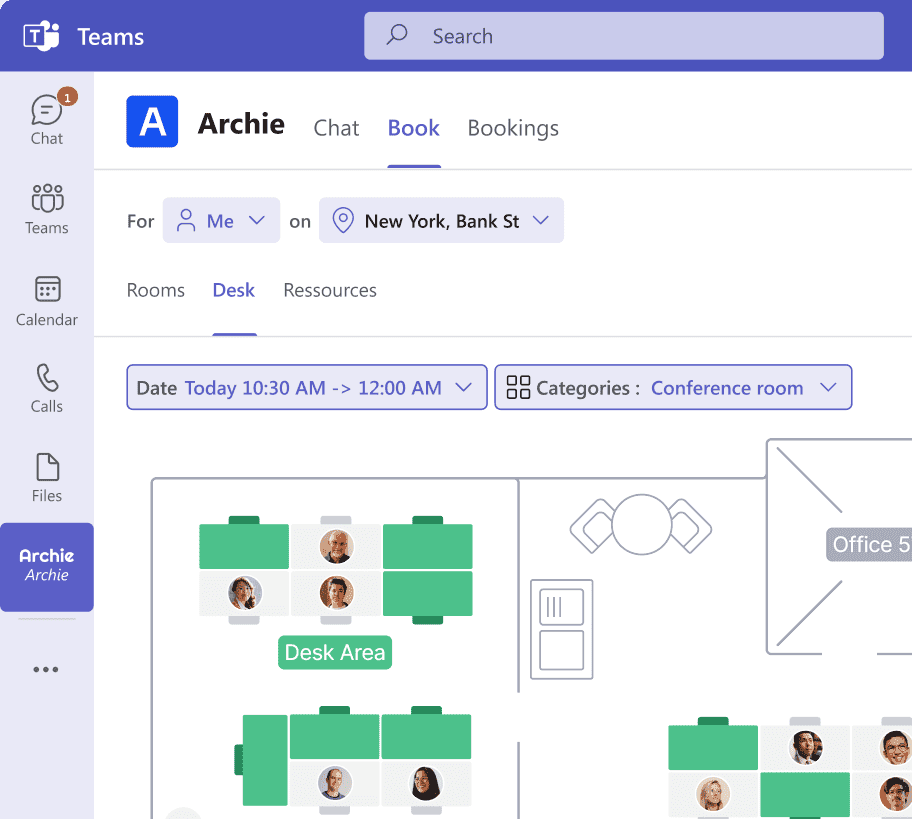



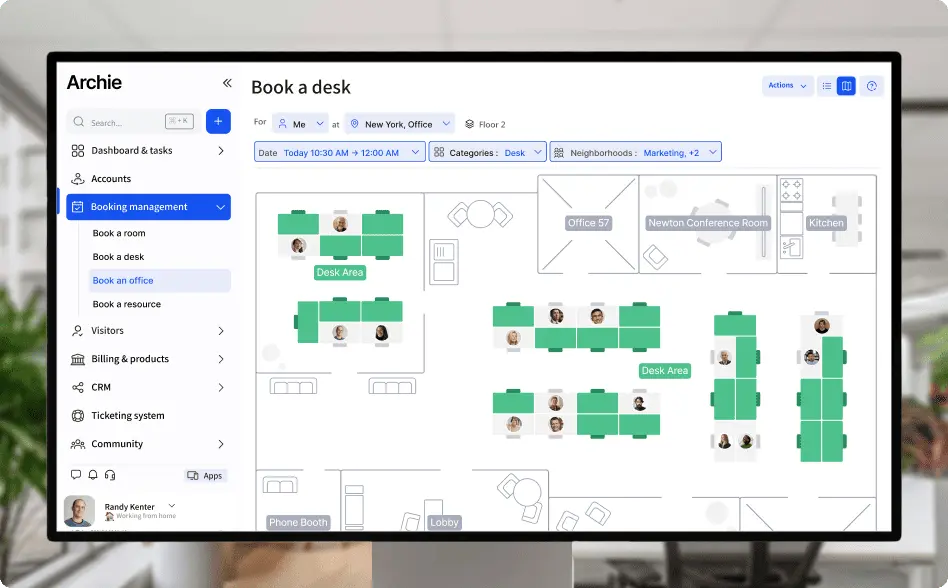
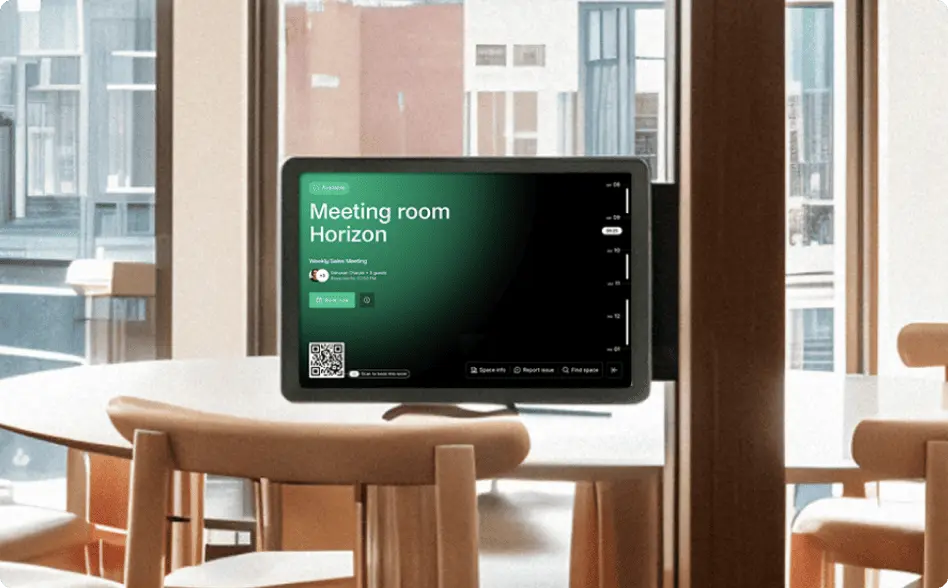
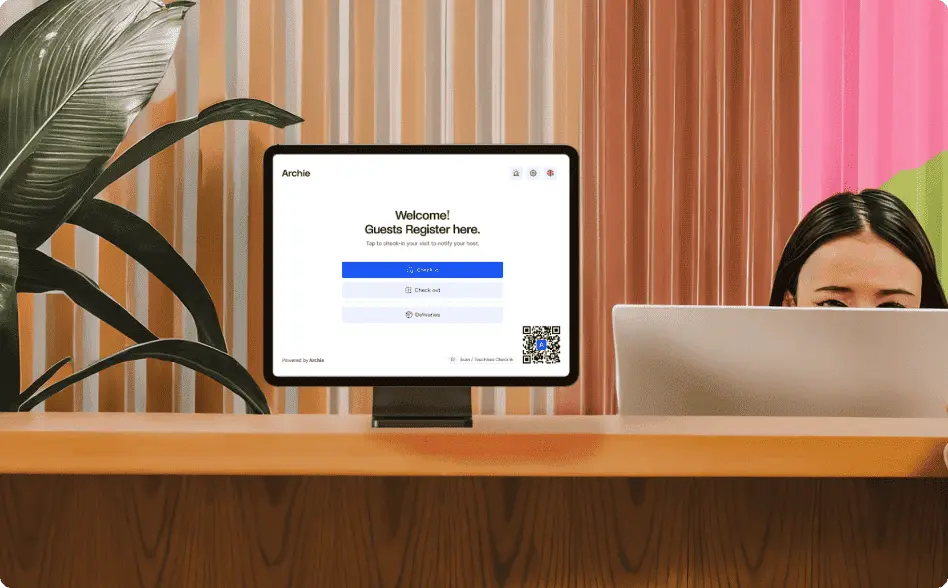
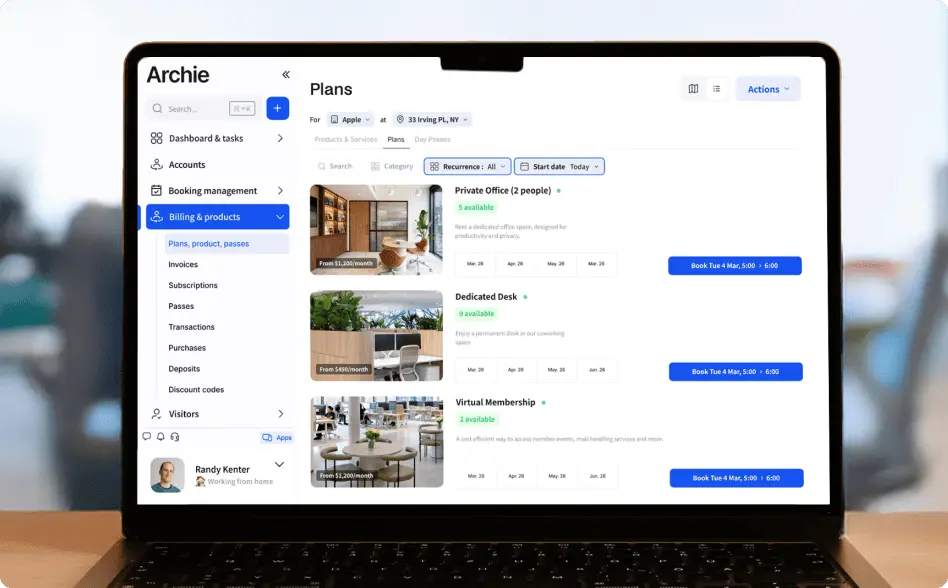




![Coworking Space Rules and Regulations [Guide + Template] Person working at a desk in a shared office, with other people collaborating in the background.](https://archieapp.co/blog/wp-content/uploads/2025/06/Coworking-spaces-rules-cover-image.jpg)
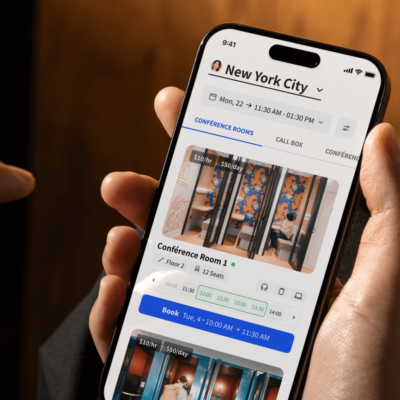

![38 Top Coworking Conferences and Events of 2026 [Confirmed] Top coworking conferences - cover image.](https://archieapp.co/blog/wp-content/uploads/2023/10/coworking-400x400.jpeg)
